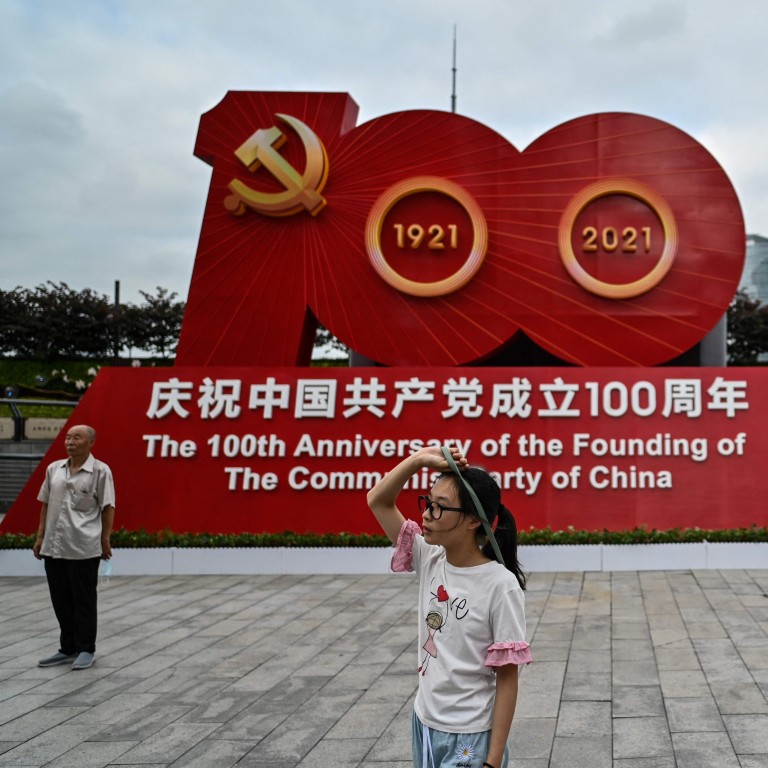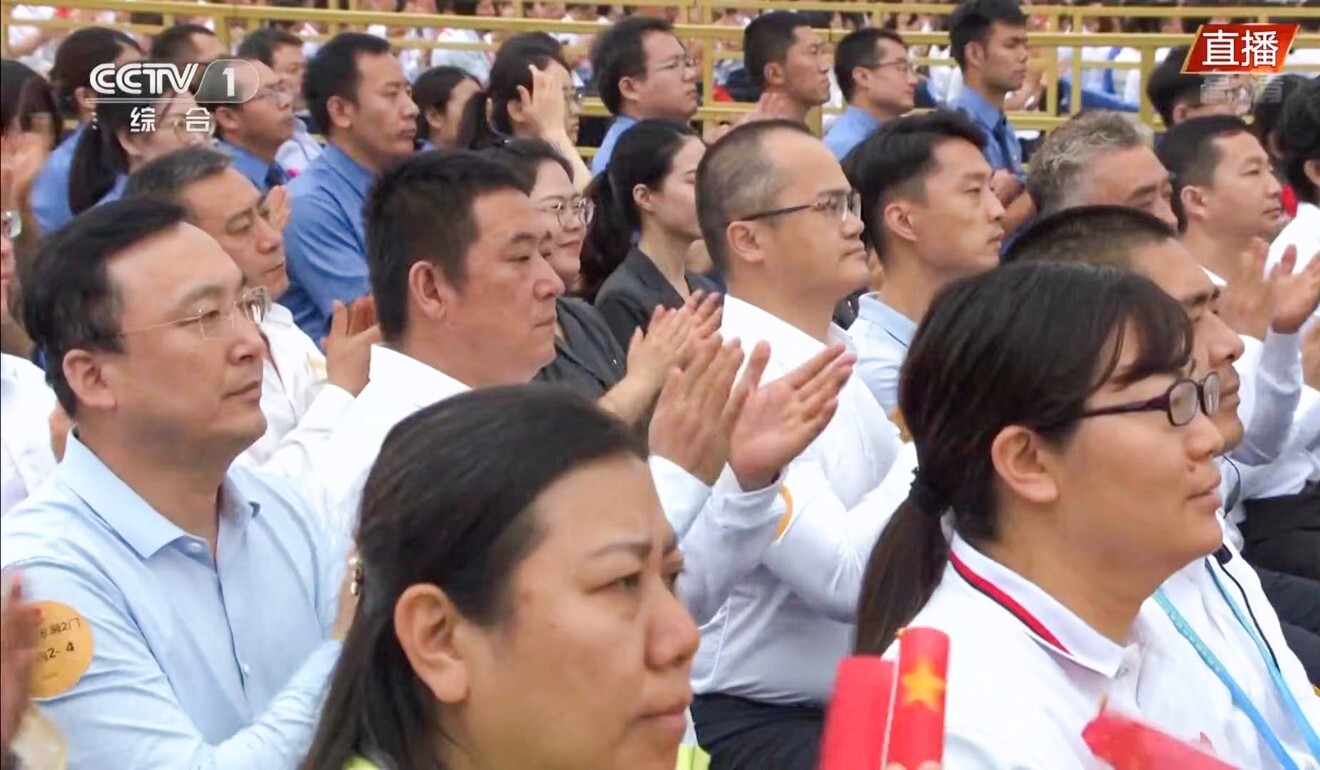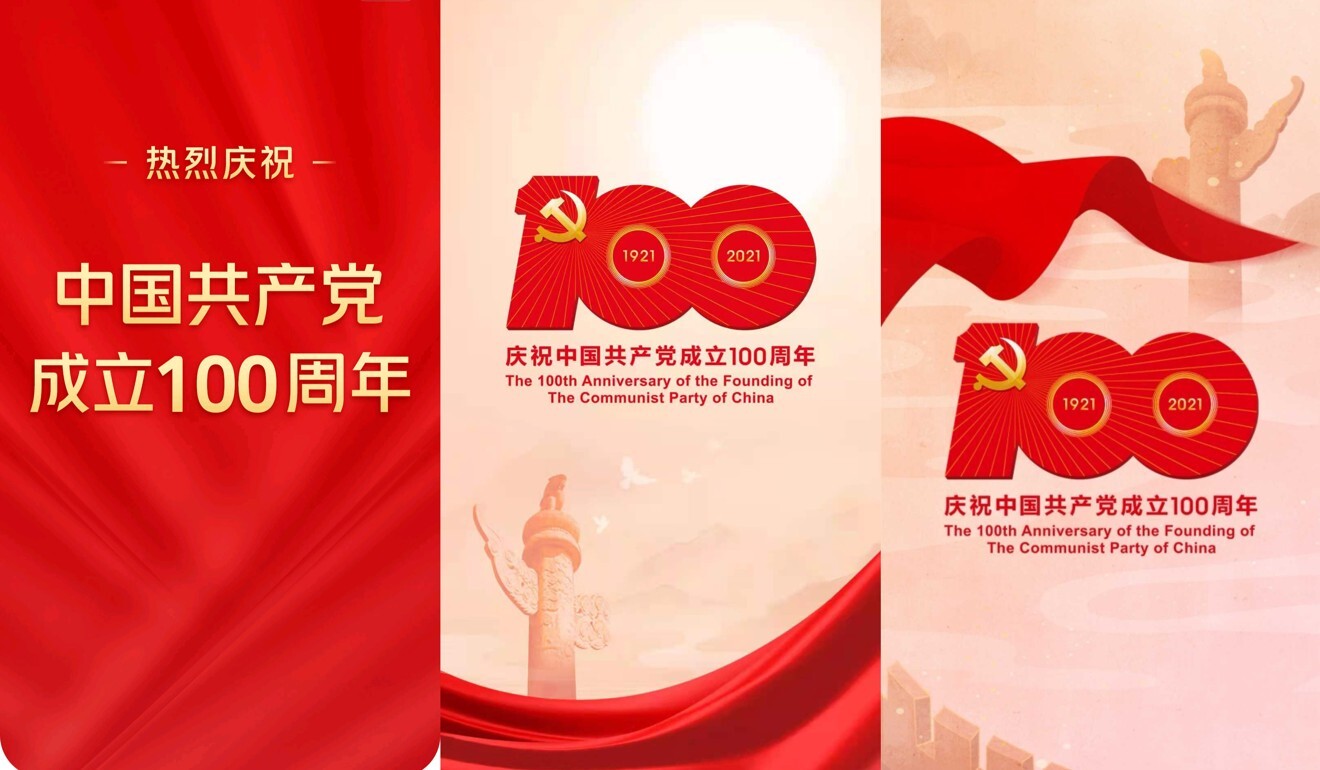
Meituan founder makes an appearance at Communist Party of China’s big centenary celebration amid antitrust probe
- The 42-year-old internet entrepreneur has kept a low profile after posting a thousand-year-old Chinese poem that was seen as a jab at the government
- Meituan is facing potential fines of up to US$700 million after it came under scrutiny for allegedly forcing merchants to sell exclusively on its platform
Wang Xing, founder, chairman and chief executive of China’s biggest food delivery service Meituan, took part in the Communist Party of China’s 100th-anniversary celebration on Thursday, a sign that he and his company are back in Beijing’s good graces amid an ongoing antitrust investigation.
Wang was seen in the audience during a live broadcast of the ceremony at Tiananmen Square, listening intently to the keynote address by party secretary Xi Jinping, the most powerful figure in China in recent decades.
The poem, posted in May on Wang’s personal social media account on Fanfou, was written during the late Tang dynasty about the burning of books by China’s first emperor Qin Shihuang. It is usually interpreted as an anti-establishment clarion call.

After removing the post, Wang tried to explain that he meant to criticise the short-sightedness of his own industry, clarifying that he was not targeting the government.
After the gaffe, Meituan shares tumbled by as much as 9.8 per cent in Hong Kong, their biggest one-day percentage plunge in two months, before clawing back some of the losses for a 7.1 per cent decline, wiping out US$16 billion in market value.
China’s antitrust investigations into internet and tech
It is not known how many other Chinese Big Tech leaders attended the grand ceremony, but Xiaomi CEO Lei Jun was invited and participated in the ceremony in Tiananmen Square on Thursday morning, according to a post to his personal Weibo account.
Real estate tycoon Hui Ka Yan, founder of China Evergrande Group, who just skirted his latest crisis, was also seen at the event, local media reported.
Meituan did not immediately reply to a request for comment.
In a speech to employees a year before Meituan’s listing in Hong Kong, Wang thanked the Communist Party for the “great times” that he said had contributed to his success.


